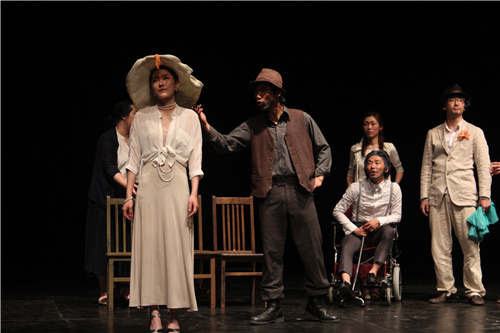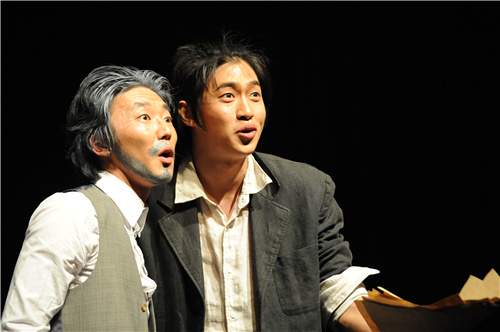
Director: Lee Si Young
Playwright: Anton Chekhov
Institution: Chung-Woon University, Korea
Venue: North Theatre
Time: 10:00, May 20, 2012
Event: The 2nd Asian Theatre Schools Festival

Director’s Notes
"New form should be needed, and what we need is just new one. If there is no new form, it is better to be nothing than to be old one".
The Seagulls written by A. Chekhov describes the ordinary and contradictory lives of people. In this play, ironic critical reality shows the humanity through the inner conflicts of human nature. By revealing silence hidden in the characters' phrases, characters' eyes, and the disclosure of brilliant inner feelings, Chekhov's mood will be open to you, and we intend to show you the renewed play through the tragic features of all the characters entailed in dramas and comedies.
We want you to take part in this play by watching this performance which is not existing but real in our lives while you imagine that the wanderer who has a lonely doom painful and sorrowful and innocence about life and human beings lives his life full of both intolerable boredom and falsity.

Synopsis
In The Seagull the young artist, Constantine Treplieff, seeks new form, new modes of expression. He is tired of the old academic ways, the beaten track; he is disgusted with the endless imitative methods, no one apparently capable of an original thought. Constantine has written a play; the principal part is to be acted by Nina, a beautiful girl with whom Constantine is in love. He arranges the first performance to take place on the occasion of his mother's vacation in the country.
She herself -- known as Mme. Abkadina -- is a famous actress of the old school. She knows how to show off her charms to advantage, to parade her beautiful gowns, to faint and die gracefully before the footlights; but she does not know how to live her part on the stage. Mme. Abkadina is the type of artist who lacks all conception of the relation between art and life. Barren of vision and empty of heart, her only criterion is public approval and material success. Needless to say, she cannot understand her son. She considers him decadent, a foolish rebel who wants to undermine the settled canons of dramatic art.
With Mme. Abkadina is her lover, Trigorin, a successful writer. When he began his literary career, he possessed originality and strength. But gradually writing became a habit: the publishers constantly demand new books, and he supplies them.
Nina, innocent of the ways of the world and saturated with the false romanticism of Trigorin's works, does not see the man but the celebrated artist. She is carried away by his fame and stirred by his presence; an infatuation with him quickly replaces her affection for Constantine. To her Trigorin embodies her dream of a brilliant and interesting life.

